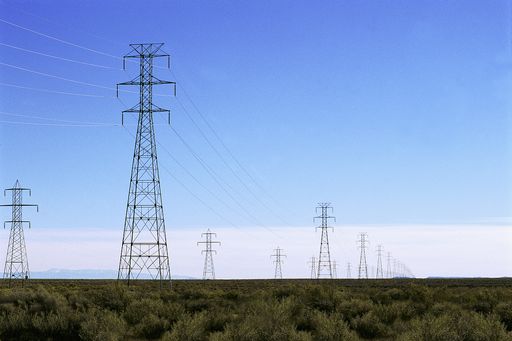The government which drafted the bill on energy programming in France, adopted by the Council of Ministers on June 18, intends to introduce a « New French energy model » which will prepare the post-oil area (cf. Ministry of Ecology, sustainable development and energy www.devloppement-durable.gouv.fr/nouveaumodeleenergetique ). The law – it will be discussed by the parliament by the ned of the year – displays important ambitions for the future: strengthening France energy independence while fighting against global warming, creating 100,000 jobs in three years. It will establish the main objectives of the energy model and provide the means to achieve them. Comments on the measures announced were mostly positive, meanwhile they stressed, in general, that the project was a well-balanced compromise. This new energy model will be built around five major objectives in the medium and long term that will be embedded in the bill : – a 40% reduction in greenhouse gas emissions by 2030 compared to 1990 (an EU target) – a 30% reduction of fossil fuel consumption in France in 2030 – bringing the nuclear share to 50% by 2025 in electricity production (instead of about 75% today) – increasing the renewable energy share to 32% of the final energy consumption (156 Mtoe in 2012) which will contribute to 40% of electricity production (instead of 16.7% in 2013), and to 15% of consumed fuels (7% in 2012) – dividing by a factor two the French final energy consumption in 2050. Six “structuring” principles will contribute achieving these objectives, among which we find controlling energy demand, diversification of supply sources and the reduction of fossil fuels consumption, increasing the renewable energies share, the association of citizens, territories and business to technical choices, the development of research and the development of means of energy storage.
Concrete financial measures to implement this policy are provided, the most important one’s addressing issues in the building and transport sectors. Building thermal renovation (they consume 44% of final energy) is a key point for the energy transition with a goal of 500,000 homes renovation per year: a tax credit covering 30% of investments will be implemented as well as « Eco-loans » at zero rate. In the transport sector (35% of final energy with energy imports amounting to € 69 billion in 2012), the priority is to electric vehicles. It is expected that customers will benefit a 10,000 euros bonus for the purchase of electric vehicles (while abandoning a diesel vehicle) and that 7 million vehicles charging points will be installed by 2050. However, production techniques for biofuels are not specified. The Caisse des Dépôts (a public finance institution will earmark a 5 billion € fund to provide loans (with a 2% rate) for the « energy transition and green growth » devoted to energy transition projects (mainly on transport).
Electricity generation is a “critical” point of the bill with two major provisions: – nuclear electricity production from nuclear power will be down from 75% to 50% by 2025 – the renewable energies share in the electricity mix in 2030 will be up from 27% in 2020 to 40% in 2030. In this perspective, the strengthening of nuclear safety must be ensured under the control of the Nuclear Safety Authority, whose role will be strengthened, while actions to develop renewable energies will be launched : increasing biogas production creating a center of excellence in marine energy, lowering investment cost in renewable energies and promoting research in this area. Energy policy will be implemented, through a multi-year energy strategy with three five-year periods in the framework of a « low carbon » strategy. Note that the installed nuclear capacity in France will be capped at 63.2 GW (its current level) and that the electricity share generated by each source will be subject to a multiannual program which will be included in EDF strategic plan.
This bill proposes ambitious energy policy objectives with concrete measures to achieve and relevant programming tools. That being said, one might wonder whether several objectives are realistic. In the long term, one might consider as doubtful the possibility of setting by law a 50% reduction target for final energy consumption in 2050 as one is still in a total uncertainty on the economic and demographic situation in France at this horizon. Recall that during the debate on energy transition, the National Alliance for the Coordination of Research for Energy (www.allianceenergie.fr ) had proposed three scenarios that would divide by a factor of 4 greenhouse gas emissions by France in 2050, with contrasting changes in demand and final energy mix. Two of those scenarios « forecast » a final demand drop of 27%, while the third one, the more proactive, “forecasts” a 41% drop but implies a very important program for thermal renovation of buildings and the development of renewable energy (Futuribles « ANCRE Scenarios for energy transition, » March 2014 www.futuribles.com ). Regarding the 2030 horizon, one may also argue that the time schedule is very tight as doubling in 15 years the renewable electricity share in electricity production is probably unrealistic (it would increase from 16.7% in 2012 to 40% in 2030), this would require significant investments, and certainly, a sharp increase in the kWh cost.
Reducing the share of nuclear in the energy mix is not unreasonable because at a high level (75% today), electricity production would be at serious risk in case of an accident, even with limited consequences, compelling France to stop several reactors for safety tests. Moreover, the nuclear kWh cost has been significantly rising in France since 2010 (it increased from 50 € / MWh in 2010 to almost 60 € / MWh in 2013 in current euros), an increase that can be explained by maintenance and enhancement of safety costs (cf. Court of Auditors, www.ccomptes.fr ). However, it is not certain that achieving the goal of downsizing to 50% the level of nuclear electricity production in 2025 is possible as it requires a considerable investment effort in the renewable energy and the grid.
We will conclude with two observations. The first one concerns R&D, it will certainly have a place in the provisions of the bill but, at present, no reference is made to the need to remove important technical obstacles that will block the energy transition which implies a  significant R & D effort in areas such as: storage of electricity (electric batteries in particular), electric networks, new materials for photovoltaic cells, second and third generation biofuels production. The second one concerns the industrial policy, as one observes that the bill does not mention the need to implement an industrial strategy in the field of energy based on R & D and innovation. However, the Alstom case (the main French industrial company with important skills in hydro and nuclear power), has recently shown the importance of industrial issues in those areas in which France has some advantages, nuclear energy and hydraulics being two of them. We must not forget also that cheap energy is a factor of competitiveness for the industry as shown in the present example of the United States with their shale gas production. The sociologist Max Weber wrote in his book ”Politics as a vocation” (written in 1919): « Politics is a tenacious and determined effort to tap planks hardwood. This effort requires both passion and dexterity. It is perfectly correct to say, and all historical experience confirms, that we could never reach the possible if the world would not be always and constantly attacking the impossible « . His words could be applied to energy policy issues, in France as in other countries. Achieving an energy transition is not an « impossible task », but it will take time, it supposes inventing new techniques for energy sectors, new modes for energy management as well as a European strategy to which the bill does not refer. Reaching the « possible » means investing in research, particularly in the social sciences to understand the evolution of societies, the motivations of citizens, and an effort to explain and convince. It also requires the creation of industrial clusters. All this is similar to the « plank hardwood tapping », which also requires the politician keeping a coherent language. However, we cannot envisage giving, rightly, priority to renewable energy in electricity production, which will bear a cost, and at the same time avoiding facing a most probable increase of the kWh cost. Let us hope that this bill is a step forward that will be followed by others.
significant R & D effort in areas such as: storage of electricity (electric batteries in particular), electric networks, new materials for photovoltaic cells, second and third generation biofuels production. The second one concerns the industrial policy, as one observes that the bill does not mention the need to implement an industrial strategy in the field of energy based on R & D and innovation. However, the Alstom case (the main French industrial company with important skills in hydro and nuclear power), has recently shown the importance of industrial issues in those areas in which France has some advantages, nuclear energy and hydraulics being two of them. We must not forget also that cheap energy is a factor of competitiveness for the industry as shown in the present example of the United States with their shale gas production. The sociologist Max Weber wrote in his book ”Politics as a vocation” (written in 1919): « Politics is a tenacious and determined effort to tap planks hardwood. This effort requires both passion and dexterity. It is perfectly correct to say, and all historical experience confirms, that we could never reach the possible if the world would not be always and constantly attacking the impossible « . His words could be applied to energy policy issues, in France as in other countries. Achieving an energy transition is not an « impossible task », but it will take time, it supposes inventing new techniques for energy sectors, new modes for energy management as well as a European strategy to which the bill does not refer. Reaching the « possible » means investing in research, particularly in the social sciences to understand the evolution of societies, the motivations of citizens, and an effort to explain and convince. It also requires the creation of industrial clusters. All this is similar to the « plank hardwood tapping », which also requires the politician keeping a coherent language. However, we cannot envisage giving, rightly, priority to renewable energy in electricity production, which will bear a cost, and at the same time avoiding facing a most probable increase of the kWh cost. Let us hope that this bill is a step forward that will be followed by others.
